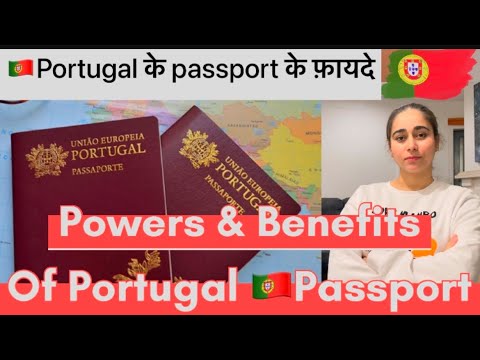Golden Visas: Navigating Immigration Portugal with Ease
Welcome to the land of sun, sea, and surf – Portugal! As a Portuguese buyer’s agent, I have had the pleasure of assisting numerous foreign clients in their quest to move to this beautiful country. Immigration to Portugal has become increasingly popular in recent years, and for good reason. It offers a high quality of life, stunning landscapes, and a vibrant culture that is steeped in history and tradition.
But, as with any move to a new country, there are challenges that come with it. From navigating the bureaucracy to finding the right property, it can be overwhelming for those unfamiliar with the Portuguese way of life. However, with the right guidance and expertise, the journey can be a smooth one.
Drawing from my own first-hand experiences and expertise in the field, I am excited to present to you a comprehensive guide to immigration to Portugal. Whether you are looking to retire in the Algarve, invest in a property in Lisbon, or start a new life in Porto, this guide will provide you with the practical tips and expert insights you need to make your move to Portugal a success.
From the legal aspects of immigration to navigating the Portuguese real estate market, I will share with you all the information you need to know to make informed decisions. So sit back, relax, and let me be your trusted guide as we embark on this exciting journey together.
How can I immigrate to Portugal?
Portugal is a beautiful country with a rich history and culture, making it an attractive destination for individuals, families, and investors looking to relocate. If you’re considering making a move to Portugal, there are several ways you can immigrate to the country.
1. Golden Visa Program
The Golden Visa program is a popular option for investors looking to relocate to Portugal. This program allows investors to obtain residency in Portugal by investing in the country’s real estate market, creating jobs, or contributing to scientific research. The minimum investment required for this program is €350,000, and the residency permit is valid for two years, after which it can be renewed.
2. Non-Habitual Resident Program
The Non-Habitual Resident (NHR) program is designed to attract foreign professionals and investors to Portugal. This program offers tax benefits to individuals who become residents of Portugal and work in certain professions, such as high-value-added activities, scientific research, and technology. The NHR program allows individuals to enjoy a flat income tax rate of 20% for ten years.
3. Student Visa
If you’re a student looking to study in Portugal, you can apply for a student visa, which allows you to study in the country for a certain period. To obtain a student visa, you need to have been accepted into a Portuguese educational institution and provide proof of financial means to support yourself during your stay.
4. Work Visa
If you have a job offer in Portugal, you can apply for a work visa. The employer must sponsor the visa, and you must provide proof of your qualifications and experience in the field. The work visa is valid for one year and can be renewed.
5. Family Reunification
If you have family members who are permanent residents or citizens of Portugal, you can apply for a family reunification visa. This visa allows you to join your family members in Portugal and obtain residency in the country.
How easy is it to immigrate to Portugal?
Portugal has become an increasingly popular destination for individuals and families looking to immigrate to Europe. With its warm climate, stunning beaches, rich history, and welcoming locals, it is not hard to see why. But how easy is it to immigrate to Portugal? In this article, we will explore the various aspects of immigrating to Portugal and provide practical tips to help make the process smoother.
Visas and Residency Permits
One of the first steps to immigrating to Portugal is obtaining the necessary visas and residency permits. For individuals from the European Union (EU) or European Economic Area (EEA), the process is relatively straightforward. They can enter and reside in Portugal for up to 90 days without a visa or residency permit. After that, they must register with the local authorities and apply for a residency permit if they wish to stay longer.
For non-EU/EEA citizens, the process can be more complicated. There are several types of visas and residency permits available, depending on the purpose of the stay. For example, the Golden Visa program is a popular option for investors who wish to purchase property in Portugal. It grants residency to non-EU citizens who invest a minimum of €500,000 in real estate in Portugal.
Language and Culture
Portuguese is the official language of Portugal, and while many locals speak English, it is still essential to learn the language to fully integrate into the culture. There are several language schools throughout the country that offer courses for foreigners, and many expats also recommend immersing oneself in the local culture to improve language skills and make connections.
Cost of Living
The cost of living in Portugal is relatively affordable compared to other European countries, especially in smaller cities and towns. However, living in larger cities like Lisbon and Porto can be more expensive. It is essential to research and budget accordingly before making the move to Portugal.
Healthcare
Portugal has a public healthcare system that provides free or low-cost medical care to citizens and legal residents. However, many expats opt for private health insurance to have access to English-speaking doctors and faster service.
Does Portugal accept immigrants?
If you’re considering moving to Portugal or investing in real estate here, one of the first questions you might ask is whether or not Portugal accepts immigrants. The short answer is yes, Portugal is a welcoming country that accepts immigrants from all over the world.
As a Portuguese buyer’s agent, I have helped many foreign clients navigate the immigration process and find their dream home in Portugal. In this article, I’ll share some of my personal experiences and practical tips for those considering a move to Portugal.
The Immigration Process
The immigration process in Portugal is relatively straightforward. Non-EU citizens will need to apply for a visa before they arrive in the country. There are several different types of visas available depending on your situation, including:
– Short-stay visas for visits of up to 90 days
– Temporary stay visas for stays of up to a year
– Residence visas for stays longer than a year
To apply for a visa, you’ll need to provide some basic information about yourself, including your passport details and the purpose of your visit. You may also need to provide additional documentation depending on your situation, such as proof of financial means or a criminal background check.
Once you arrive in Portugal, you’ll need to register with the local authorities within 90 days. This process is known as “getting your residency” and involves providing proof of address, income, and health insurance.
Living in Portugal
Portugal is a great place to live, with a high quality of life, beautiful scenery, and a welcoming culture. As an expat myself, I’ve found that the Portuguese are friendly and open-minded, making it easy to integrate into the local community.
One thing to keep in mind is that Portuguese bureaucracy can be slow and frustrating at times. However, with a little patience and persistence, you can navigate the system and get everything done that you need to.
Real Estate Opportunities
If you’re considering investing in real estate in Portugal, there are plenty of opportunities to be found. The country’s property market has been growing steadily in recent years, with prices still lower than many other European countries.
As a buyer’s agent, I can help you find the perfect property for your needs and budget. Whether you’re looking for a holiday home, a rental property, or a permanent residence, I can provide expert advice and guidance throughout the buying process.
How can I immigrate to Portugal from USA?
If you are considering immigrating to Portugal from the USA, there are several things you need to know before making the move. Portugal is a beautiful country with a rich history, friendly people, and a high quality of life. However, the process of immigrating can be overwhelming and complex. In this article, we will discuss the steps you need to take to move to Portugal from the USA, including visas, permits, and other important considerations.
Visa Requirements for Immigrating to Portugal from USA
As a US citizen, you do not need a visa to enter Portugal for tourism purposes for up to 90 days. However, if you plan to stay longer than that, you will need to apply for a residence visa. There are several different types of residence visas depending on the reason for your move, including:
- Retirement visa
- Work visa
- Student visa
- Investor visa
- Family reunification visa
Each type of visa has its own requirements, but in general, you will need to provide proof of financial means, health insurance, and a clean criminal record. It is important to note that the process of obtaining a residence visa can be lengthy and complicated, so it is recommended to start the process well in advance of your planned move.
Permits and Registration
Once you have obtained your residence visa, you will need to register with the Portuguese authorities. This includes obtaining a tax number and registering for social security and healthcare. You will also need to apply for a residence permit, which allows you to stay in the country for longer than 90 days. The residence permit is usually valid for one year and can be renewed annually.
Cost of Living
Before you make the move to Portugal, it is important to consider the cost of living. While Portugal is generally more affordable than other Western European countries, it can still be expensive, especially in cities like Lisbon and Porto. Housing costs, in particular, can be high, especially in desirable areas. However, food and transportation can be relatively affordable, especially if you are willing to shop at local markets and take public transportation.
Cultural Differences
Portugal has a rich cultural heritage and a unique way of life that may be different from what you are used to in the USA. It is important to learn as much as you can about the culture and customs of Portugal before you make the move. This will help you to better integrate into the local community and avoid misunderstandings and culture shock.
Portugal’s immigration policies and real estate market have made it an attractive destination for foreigners looking to invest in property and move to the country. With a stable economy, affordable cost of living, and a high quality of life, Portugal provides an excellent opportunity for real estate investment. However, navigating the legal aspects of buying property and managing it can be daunting for foreign buyers. As a Portuguese buyer’s agent, I would recommend seeking professional advice and guidance to ensure a successful and stress-free investment experience. With a deep understanding of Portugal’s real estate market, legal aspects of buying property, and property management, I can provide expert insights and practical tips to help foreign buyers make informed decisions and achieve their investment goals in Portugal.






